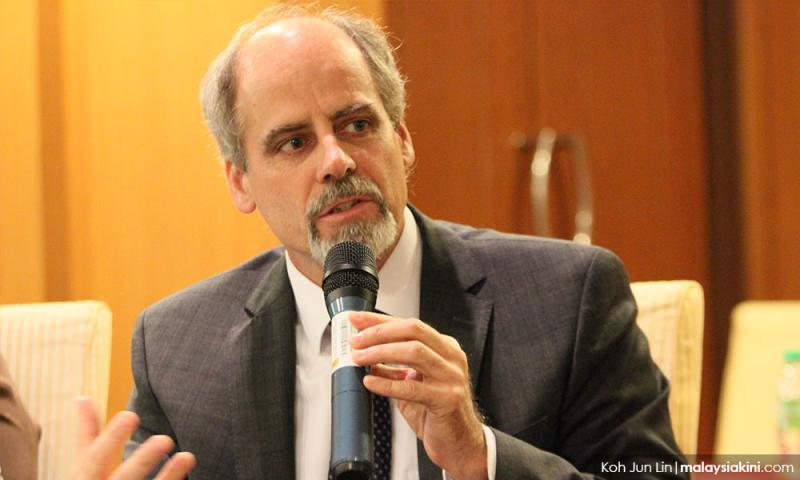Malaysia well ahead in achieving UN's sustainable development goals
Malaysia stands exceptionally well compared with other countries in terms of achieving some of the United Nation’s Sustainable Development Goals (SDGs), especially in eradicating poverty and providing education and healthcare, according to a United Nations official.
UN resident coordinator in Malaysia Stefan Priesner said that while the country has made great strides in reducing poverty, it can do more by targeting the locations where pockets of poverty still exist and where vulnerable groups live.
“The power of data, which has only been available in the last 10 to 15 years, has given the opportunity for us to pinpoint the hotspots where much poverty occurs, whether it is in the rural or urban areas. It will be a great indicator for countries like Malaysia to tackle the problem effectively," he said after an SDG Summit Roundtable talk session at Wisma Bernama, here.
The session, moderated by Bernama deputy editor-in-chief (business & finance) Khaidzir Md Yunus, provided an overview of the upcoming two-day SDG Summit 2019 beginning Wednesday in Kuala Lumpur.
Apart from Priesner, the deputy secretary-general (macro) of the Ministry of Economic Affairs (MEA), Zakiah Jaafar, also interacted with the panellists of the roundtable made up of key members of Bernama’s editorial team.
Priesner said Malaysia has been doing very well and has covered most of the issues in terms of education and healthcare, and it should now focus on improving the quality of the two sectors, which would require a significant amount of investment in terms of resources.
As for the environment, he said, Malaysia is one of the 10 biodiversity hotspots in the world in terms of its rainforest, where the biodiversity is multiple times higher than in Europe. Hence, he added, it is important to preserve the rainforest and wildlife.
“For example, in Europe, I will have to travel miles to see the same amount of biodiversity that I can see in Sarawak with only a 100-metre walk, which just shows the importance of the biodiversity agenda in Malaysia,” said Priesner, who is also the UN Development Programme (UNDP) resident representative for Malaysia, Singapore and Brunei Darussalam.
In 2015, all 193 member countries of the UN unanimously adopted the 2030 Agenda and SDGs with 17 goals that balance the economic, social and environmental pillars of development.
Meanwhile, Zakiah said Malaysia’s sustainable development had been implemented since the 1970s, with the emphasis on eradicating poverty, improving the people’s well-being, providing universal access to education as well as caring for the environment.
She said the steps taken included the strengthening of the institutional framework for sustainable development and improving the coordination through the alignment of the SDGs with the five-year national development plan.
She also said that for Malaysia to recognise a comprehensive implementation of SDGs, it would require the mobilisation of resources, including manpower, capacity building, physical spaces, and funding.
“Malaysia has undertaken a mapping exercise to align the SDGs implementation under the 11th Malaysia Plan (11MP) framework to ensure effective collaboration among stakeholders, efficient resource mobilisation and utilisation, as well as better monitoring mechanisms for evaluation.
“This integration exercise involves mapping the action plan initiatives and outcomes of the 11MP to the goals, targets, and indicators of SDGs,” she said at the roundtable session.
The panellists from Bernama consisted of deputy editor-in-chief (news) Abdul Rahman Ahmad, head of digital media Hafizah Kamarudin, head of the features and strategic writing desk Sakina Mohamed and Nur Ashikin Abdul Aziz of the International News Service.
- Bernama
RM12.50 / month
- Unlimited access to award-winning journalism
- Comment and share your opinions on all our articles
- Gift interesting stories to your friends
- Tax deductable

 Bernama
Bernama